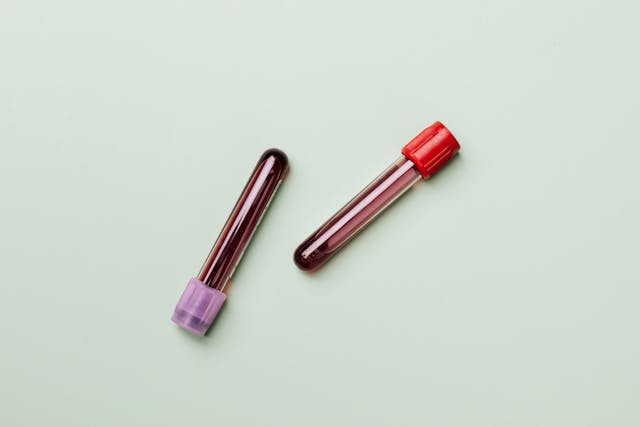
The Best Ways on How to Cure IBS Permanently in Women
Time to read 3 min
Time to read 3 min
While there is no direct cure recommended by doctors for IBS, there are several strategies you can use to make sure you don't get another flare-up. IBS can also be addressed as a diet and lifestyle-related condition, during the early stages of experiencing the symptoms.
When looking for the best ways on how to cure IBS permanently, we need to ensure that we're getting tested regularly. You can take the IBS and Gut Health tests by MyDiagnostics, to start checking for bio-markers that are specific to gastrointestinal issues.
There are 4 types of IBS in women, namely IBS-D, C, M and U, which is why tracking your symptoms will help in preparing a better diagnosis.
You can track your bowel movements and review any changes in your digestive output, to check for flare-ups and other risk factors.
You can follow an organic and low fodmap diet to help in improving IBS symptoms. Women may require additional minerals and nutrients for hormonal regulation, sleep, stress relief, etc. which can be tied to digestive system output.
By improving your lifestyle, you can eliminate exposure to toxins and improve your overall sense of wellbeing. You can improve circulation, as well as enhance flexibility in the body.
You can add fiber supplements, but you need to check whether they can exacerbate IBS symptoms. Most supplements are perfectly fine to consume for women, especially husk, bran, and OTC fibre.
There are several mental health therapies, yoga, mindfulness, and meditative solutions to help with preventing and relieving IBS symptoms. You can also manage symptoms by avoiding IBS triggers through better stress management.
You can take probiotics in the form of curd, as well as medical probiotics to improve your gut bacteria. This can help you in digesting your food better, while giving you symptom relief long-term.
Irritable bowel syndrome IBS can have several symptoms that you would need to track. You should also check for symptom severity, triggers, inflammation frequency, and overall impact on wellbeing.
You can experience dizziness and nausea, that may not be connected to any other underlying issue.
Vomiting is a common sign of IBS or other digestive health issues, especially if you aren't on any medication which could have this side-effect.
You should be careful of blood in your stool as it could be an early sign of something wrong in your digestive tract. You can check whether this is a frequent occurrence prior to getting tested for IBS.
If you have suddenly lost a significant amount of weight and have low-energy, then this may be related to IBS or other digestive health issue.
You can experience abdominal pain, along with gas and bloating when there is an issue with the GI.
These tests can check for your digestive system problems through blood, stool, urine, and imaging testing.
A gut health test can determine your digestive functioning through blood test markers. You can also check for any intolerances that may be triggering IBS-like symptoms in your body.
An ultrasound and CT scan can check for celiac disease, colon cancer, and other serious conditions. This may be recommended in more severe cases.
A colonoscopy is also recommended for older men that may be experiencing IBS symptoms. You can get a test done to check for the important signs.
A biopsy can be collected through the upper endoscopy method to check for signs of disease escalation. You can start treatment and make the right changes in your diet and lifestyle.
These are the treatment options for someone with severe IBS, which can be prescribed by your gastroenterologist.
You can relieve IBS symptoms through pain medication, laxatives, husk, and other solutions. IBS patients can focus on symptom relief through various herbal and medical interventions.
Anti-inflammatory drugs are prescribed by doctors that suspect inflammatory bowel disease or other issues with the digestive tract in more serious cases. These can help you manage IBS symptoms better.
Surgery may be recommended if there is damage or other problems with the digestive tract. This is applicable in serious cases, where surgery is vital for the patient.
* Medical Disclaimer - This information is for educational purposes only. No information provided on this website, including text, graphic, and images, are intended as substitutes for professional medical advice. Please consult with your doctor about specific medical advice pertaining to your condition(s).

